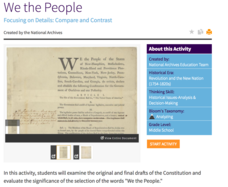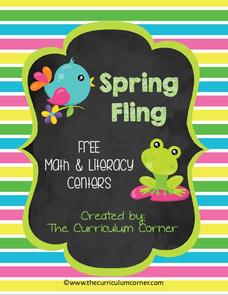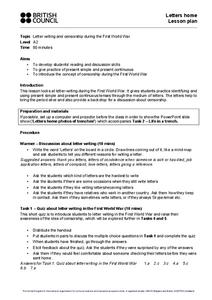Curated OER
5th Grade Historical Fiction: Solder's Letter
A picture is worth a thousand words, but sometimes a single word can go a long way as well. Practice making inferences about character traits with a letter written from the perspective of a soldier in the American Revolution.
National Institute for Literacy
Making Sense of Decoding and Spelling
Go over digraphs, vowel sounds, and affixes with a series of decoding and spelling lessons. Each lesson guides learners through a different reading and phonics skill, building on the lesson before, and challenging them with each step.
National Energy Education Development Project
Great Energy Debate
If someone yelled for eight years and eight months, they could produce enough energy to heat one cup of coffee. A lesson on energy encourages scholars to research 10 different energy sources in groups before playing a game. Twenty...
PHET
Features of the Sun
There are so many things to discover about the sun! Pupils discuss their knowledge of the sun, explore its features, apply their knowledge by labeling photographs, and then reflect on their learning by working in groups to draw and label...
US National Archives
We the People Focusing on Details: Compare and Contrast
Even the most inspiring documents in American history had to go through a few drafts before they were ready for publication. Reinforce the importance of the writing process, as well as the collaborative nature of democracy, with an...
Curriculum Corner
Spring Fling Math and Literacy Centers
Fling your class into spring with a set of math and literacy center worksheets. Learners will enjoy the variety with sheets that practice multiplication, missing addends, before/after and more/less than number comparisons, as well...
Science Matters
Wave Watching
Seismologists use the direction and arrival times of p waves and s waves to determine the distance to the source of an earthquake. The engaging lesson has students line up to form human waves. Through different movements when attached,...
British Council
Letters Home
When you're writing historical fiction, the past really can become the present — especially if you're writing in the present continuous tense! Cover World War I, verb tenses, censorship, and letter writing with one informative...
Nosapo
Verbs: Regular, Irregular, Simple Past Tense
Adding -ed to the ends of most verbs can change a sentence to the past tense—but what about verbs like think or draw? Provide class members with practice activities that focus on both regular and irregular verbs in the simple past...
National Institute on Drug Abuse
The Brain's Response to Drugs
Marijuana affects the brain differently than inhalants, which have a different effect than opioids. Elementary and middle school classes read about these drugs as well as nicotine, methamphetamine, hallucinogens, and steroids before...
ReadWriteThink
Concept Map
When you think of one topic, related ideas and details invariably follow. That's concept mapping! Jot down ideas with a straightforward graphic organizer that works both electronically and as a printed resource.
Reed Novel Studies
The Lion, The Witch, and The Wardrobe: Novel Study
Are there secret worlds? The four children in The Lion, The Witch, and The Wardrobe answer the imaginative question when they discover a magical land in a wardrobe. Scholars read the first chapter to match vocabulary words and...
Institute for Humane Education
Selling "Boy" and "Girl"
Monster trucks, action figures, and video games. Are these toys designed for boys or girls? Scholars work in small groups to find and categorize examples of boy and girl toys from catalogs. Next, learners analyze the two sets of pictures...
Howard Hughes Medical Institute
Using Genetic Crosses to Analyze a Stickleback Trait
Two fish appear different, but how do scientists determine their genotypes? Scholars practice performing test crosses to determine the genotypes of fish given their phenotypes. They answer in-depth comprehension questions and complete...
College Board
2014 AP® Biology Free-Response Questions
The most popular AP science exam, Biology, also maintains the highest passing rate. The College Board releases old test questions covering trichomes and much more, along with statistics and scoring guidelines to help scholars study for...
College Board
2015 AP® Physics 1 Free-Response Questions
It's rare for even 40 percent of test takers to pass the AP Physics 1 exam. Improve those odds for young scientists with the help of actual free response questions covering topics from free body diagrams to velocity. The College Board...
US Institute of Peace
Understanding the Levels of Conflict
Conflicts can quickly get out of hand—which is why it's important to understand the four different levels of conflict. An important lesson plan lays out the definitions of personal, local, national, and international conflict before...
US National Archives
WWII: Western Europe 1939-45 – Hamburg
Was bombing German cities an effective means to an end, or was it a war crime? Could it be both? Young historians ponder these questions with an activity that prompts them to use primary sources to summarize the debate surrounding RAF...
New York State Education Department
US History and Government Examination: August 2011
Using primary source documents, pupils consider how the United States' democratic story has evolved over time. A second essay question examines the role of geography in history, and multiple-choice questions sharpen test-taking skills.
DocsTeach
Comparing the Magna Carta and English Bill of Rights with the U.S. Bill of Rights
Just how alike are some historical documents? Discover the similarities between the Magna Carta and the United States Bill of Rights in a fast-paced activity. Historians learn the importance of both documents and the lasting impact they...
DocsTeach
Pearl Harbor Dispatch Analysis
Scholars play a historical version of the telephone game when they analyze the dispatch from the Pearl Harbor attack. The quick activity uses primary sources to help academics analyze an historical event. Young historians also complete a...
Academy of American Poets
Teach This Poem: "Election Day, November, 1884" by Walt Whitman
To begin a study of Walt Whitman's poem, "Election Day, November 1884," learners first call out a word or two that describes their reaction to the recent presidential election. They then read an encyclopedia entry about the Presidential...
PBS
Genes 101: Life’s Instruction Manual | UNC-TV Science
Discover the common genetic ground shared by humans and chickens. Group members listen and view an animation about genes and proteins, which details their roles in building biological structures such as tissues and organs. Participants...
PBS
The Water Cycle: Ways of Watersheds | UNC-TV
Explore water on Earth without getting wet using a short animated activity. Scientists learn how water interacts with the land, the importance of watersheds, and relevant vocabulary as they watch an informative and engaging video....
Other popular searches
- Idealism vs Realism
- Art and Idealism
- American Idealism
- Spiritual Idealism
- Materialism vs Idealism
- Pragmatism Idealism
- Idealism vs. Realism
- Disney Movies and Idealism
- Materialism vs. Idealism






















